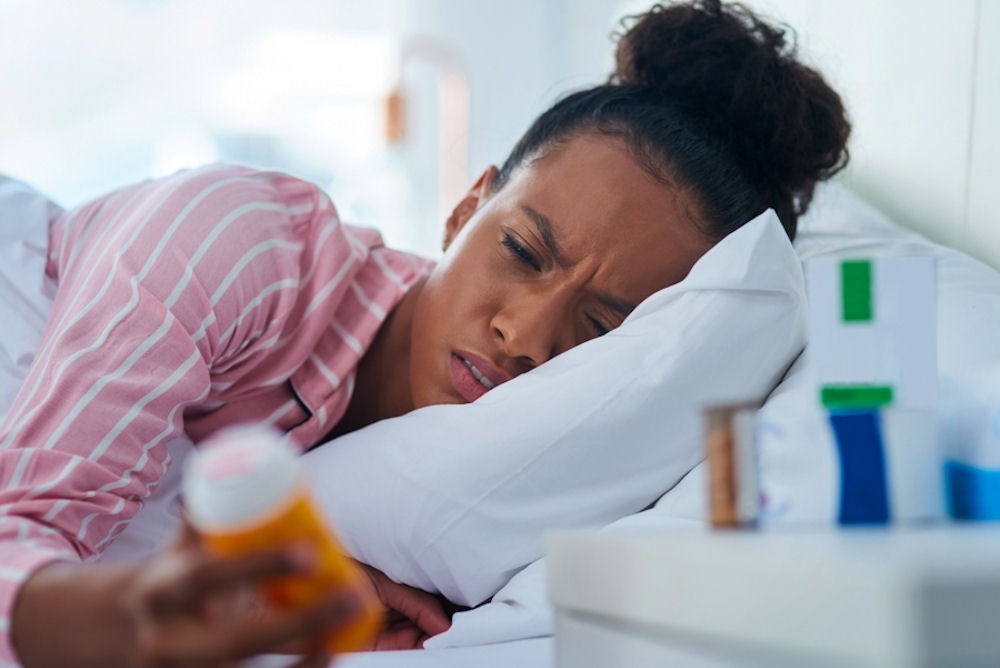Understanding Mental Health and Depression
 Do you struggle with feelings of sadness, hopelessness, or lack of interest in activities you once enjoyed? These feelings may be symptoms of depression, a mental health condition that affects millions of people worldwide. Depression is more than just feeling down or blue; it is a serious illness that can impact your daily life and overall well-being.
Do you struggle with feelings of sadness, hopelessness, or lack of interest in activities you once enjoyed? These feelings may be symptoms of depression, a mental health condition that affects millions of people worldwide. Depression is more than just feeling down or blue; it is a serious illness that can impact your daily life and overall well-being.
Depression can be caused by a variety of factors, including genetics, life events, and chemical imbalances in the brain. It can also be a symptom of other underlying mental health conditions, such as anxiety or post-traumatic stress disorder (PTSD). If you are experiencing symptoms of depression, it is important to seek help from a medical professional.
Major depression is a common form of depression that can be debilitating. Symptoms of major depression include persistent sadness, feelings of worthlessness or guilt, changes in appetite or sleep patterns, and difficulty concentrating. If you are experiencing these symptoms, it is important to seek professional help.
While there are many treatments available for depression, including therapy and medication, some people may also benefit from taking certain vitamins and minerals. Research suggests that certain nutrients, such as vitamin B12, folate, and vitamin D, may play a role in mental health.
It is important to note that while vitamins and minerals may be helpful for some people, they are not a substitute for professional treatment. If you are experiencing symptoms of depression, it is important to seek help from a medical professional.
Specific Vitamins To Help With Depression
Vitamins play a crucial role in maintaining optimal mental health. They are essential for the proper functioning of the brain and the nervous system. What vitamins can help with depression? Vitamins A, B, C, D, E, and K are particularly important for mood regulation, memory, and cognitive function.
Vitamin D
Vitamin D is a vital nutrient that helps regulate mood and ward off depression. Studies have shown that people with depression often have low levels of vitamin D, making it an essential vitamin for treating depression. Vitamin D can be obtained through exposure to sunlight, diet, and supplements.
B Vitamins
B vitamins, including B1, B6, and B12, play a crucial role in brain function and mental health. They help regulate mood, reduce stress and anxiety, and improve cognitive function. Studies have shown that B vitamin deficiencies are associated with depression. Taking B vitamin supplements can help alleviate symptoms of depression.
Vitamin A
Vitamin A is an essential nutrient for brain function and mental health. It helps regulate mood, reduce stress, and improve cognitive function. Studies have shown that vitamin A deficiency is associated with depression. Taking vitamin A supplements can help alleviate symptoms of depression.
Vitamin C
Vitamin C is a powerful antioxidant that helps reduce inflammation and oxidative stress in the body. It also helps regulate mood and reduce stress and anxiety. Studies have shown that vitamin C deficiency is associated with depression. Taking vitamin C supplements can help alleviate symptoms of depression.
Vitamin E
Vitamin E is another important antioxidant that helps protect the brain from oxidative stress. It also plays a role in maintaining healthy brain function and preventing cognitive decline.
Vitamin K
Vitamin K is an essential nutrient for brain function and mental health. It helps regulate mood, reduce stress, and improve cognitive function. Studies have shown that vitamin K deficiency is associated with depression. Taking vitamin K supplements can help alleviate symptoms of depression.
Dietary Sources of Essential Vitamins
What you eat can have a significant impact on your mental health, including depression. Ensuring that you get enough essential vitamins and minerals through your diet is crucial. Here are some dietary sources of essential vitamins that can help with depression:
What foods are rich in vitamin D?
Vitamin D is essential for your mental health, and it is commonly found in oily fish, such as salmon, mackerel, and tuna. Additionally, egg yolks and mushrooms are good sources of vitamin D. If you are a vegetarian or vegan, you can also find vitamin D in fortified cereals and plant-based milk.
What foods are rich in vitamin B6?
Vitamin B6 plays a crucial role in producing neurotransmitters that regulate mood, such as serotonin and dopamine. Foods rich in vitamin B6 include poultry, fish, beans, and fortified cereals.
What foods are rich in vitamin B12?
Vitamin B12 is involved in the production of red blood cells and helps maintain a healthy nervous system. It is found primarily in animal products, such as meat, fish, and dairy. If you are a vegetarian or vegan, you can find vitamin B12 in fortified cereals, plant-based milk, and nutritional yeast.
What foods are rich in folate?
Folate, also known as vitamin B9, is essential for brain function and mental health. It is found in dark leafy greens, such as spinach and kale, as well as beans, lentils, and fortified cereals.
What foods are rich in omega-3 fatty acids?
Omega-3 fatty acids are essential for brain function and can help reduce symptoms of depression. Good sources of omega-3s include fatty fish, such as salmon and tuna, as well as flaxseeds, chia seeds, and walnuts.
By incorporating these foods into your diet, you can ensure that you are getting the essential vitamins and minerals that can help with depression.
Supplements for Depression
What supplements can help with depression? While supplements cannot cure depression, they may help relieve symptoms and improve your overall mood. Here are some natural supplements that you can try:
- Omega-3 fatty acids: Found in fish oil supplements, omega-3 fatty acids have been shown to improve symptoms of depression.
- Vitamin D: Vitamin D deficiency has been linked to depression, so taking a vitamin D supplement may help.
- B vitamins: B vitamins are important for brain function and may help improve symptoms of depression. Look for a B-complex supplement that contains all of the B vitamins.
- St. John’s Wort: This herb has been used for centuries to treat depression and may be effective for mild to moderate depression.
- SAM-e: Short for S-adenosylmethionine, SAM-e is a compound that may help improve mood and reduce symptoms of depression.
- 5-HTP: Short for 5-hydroxytryptophan, this supplement may help increase serotonin levels in the brain and improve mood.
- Magnesium: This mineral is important for brain function and may help improve symptoms of depression.
It’s important to talk to your doctor before taking any supplements, especially if you’re already taking medication for depression. Some supplements can interact with medications, and some may not be safe for people with certain medical conditions.
What Are the Side Effects of Vitamin Supplements?
While most vitamin supplements are safe when taken in recommended doses, some can cause side effects. For example, high doses of vitamin B6 can cause nerve damage, while high doses of vitamin C can cause diarrhea and stomach upset.
In rare cases, vitamin supplements can cause adverse effects. For example, high doses of vitamin A can cause liver damage, while high doses of vitamin D can cause kidney damage.
It’s essential to follow the recommended dosage instructions on the supplement label and not exceed the recommended dose. It’s also important to talk to your doctor before taking high doses of any vitamin or mineral supplement, especially if you have a pre-existing medical condition. Your doctor can help you determine if a high dose is safe and appropriate for you, and can monitor your health for any potential adverse effects.
 Can Vitamin Supplements Interact with Prescription Medications?
Can Vitamin Supplements Interact with Prescription Medications?
If you’re taking prescription medications for depression or anxiety, you may be wondering if it’s safe to take vitamin supplements as well. While it’s generally safe to take vitamins and minerals in recommended doses, some supplements can interact with prescription medications and cause adverse effects.
For example, St. John’s Wort, a popular herbal supplement for depression, can interact with antidepressant medications and reduce their effectiveness. Blood thinners like Warfarin can also interact with vitamin K supplements and increase the risk of bleeding.
It’s important to talk to your doctor before taking any vitamin or mineral supplements, especially if you’re taking prescription medications. Your doctor can help you determine if a supplement is safe and appropriate for you, and can monitor your health for any potential interactions or side effects.




